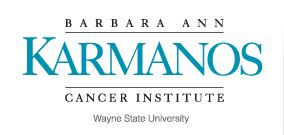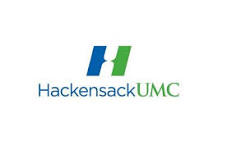A Phase II Study of Single Agent Brentuximab Vedotin in Relapsed/Refractory CD30 Low (<10%) Mature T Cell Lymphoma (TCL)
| Status: | Recruiting |
|---|---|
| Conditions: | Infectious Disease, Lymphoma, Gastrointestinal |
| Therapuetic Areas: | Gastroenterology, Immunology / Infectious Diseases, Oncology |
| Healthy: | No |
| Age Range: | 18 - Any |
| Updated: | 11/7/2018 |
| Start Date: | June 17, 2016 |
| End Date: | December 2022 |
| Contact: | Deepa Jagadeesh, MD, MPH |
| Email: | jagaded@ccf.org |
| Phone: | 216-444-0857 |
This study will include patients with mature T-cell lymphoma (MTCL) that has been treated
with at least one type of chemotherapy, but is not responding or coming back after the
previous treatment.
This clinical trial uses a drug called Brentuximab Vedotin. The Food and Drug Administration
(FDA) has approved Brentuximab Vedotin for sale in the United States for certain diseases.
Brentuximab is still being studied in clinical trials like this one to learn more about what
its side effects are and whether or not it is effective in the disease or condition being
studied.
Brentuximab Vedotin is a type of drug called an antibody drug conjugate (ADC). ADCs usually
have 2 parts; a part that targets cancer cells (the antibody) and a cell killing part (the
chemotherapy). Antibodies are proteins that are part of your immune system. They can stick to
and attack specific targets on cells. The antibody part of Brentuximab Vedotin sticks to a
target called CD30. CD30 is an important molecule on some cancer cells (including non Hodgkin
lymphoma) and some normal cells of the immune system. The cell killing part of Brentuximab
Vedotin is a chemotherapy called monomethyl auristatin E (MMAE). It can kill cells that the
antibody part of Brentuximab Vedotin sticks to. Brentuximab Vedotin has also been shown to
kill cancer cells with levels of CD30 that cannot be seen by traditional methods.
This study is being done to test if the study drug has an effect on Mature T cell Lymphoma
with such low levels of a target called CD30 and how your disease respond to the study drug.
with at least one type of chemotherapy, but is not responding or coming back after the
previous treatment.
This clinical trial uses a drug called Brentuximab Vedotin. The Food and Drug Administration
(FDA) has approved Brentuximab Vedotin for sale in the United States for certain diseases.
Brentuximab is still being studied in clinical trials like this one to learn more about what
its side effects are and whether or not it is effective in the disease or condition being
studied.
Brentuximab Vedotin is a type of drug called an antibody drug conjugate (ADC). ADCs usually
have 2 parts; a part that targets cancer cells (the antibody) and a cell killing part (the
chemotherapy). Antibodies are proteins that are part of your immune system. They can stick to
and attack specific targets on cells. The antibody part of Brentuximab Vedotin sticks to a
target called CD30. CD30 is an important molecule on some cancer cells (including non Hodgkin
lymphoma) and some normal cells of the immune system. The cell killing part of Brentuximab
Vedotin is a chemotherapy called monomethyl auristatin E (MMAE). It can kill cells that the
antibody part of Brentuximab Vedotin sticks to. Brentuximab Vedotin has also been shown to
kill cancer cells with levels of CD30 that cannot be seen by traditional methods.
This study is being done to test if the study drug has an effect on Mature T cell Lymphoma
with such low levels of a target called CD30 and how your disease respond to the study drug.
Primary Objective
• To determine overall response rate (CR+PR) of brentuximab vedotin in CD30 low (<10%)
relapsed or refractory T cell lymphoma (TCL)
Secondary Objective(s)
- Complete remission (CR) rate
- Duration of response (DOR)
- Progression free survival (PFS)
- Overall survival (OS)
- Time to treatment failure (TTF)
• To determine overall response rate (CR+PR) of brentuximab vedotin in CD30 low (<10%)
relapsed or refractory T cell lymphoma (TCL)
Secondary Objective(s)
- Complete remission (CR) rate
- Duration of response (DOR)
- Progression free survival (PFS)
- Overall survival (OS)
- Time to treatment failure (TTF)
Inclusion Criteria:
- Patients must have histologically or cytologically confirmed relapsed/refractory CD30
low (<10%) TCL: including peripheral TCL not otherwise specified (PTCL NOS),
angioimmunoblastic T cell lymphoma (AITL), hepato-splenic T cell lymphoma (HTCL),
adult T cell leukemia/lymphoma (ATLL), enteropathy associated T cell lymphoma (EATL),
adult T cell leukemia/lymphoma (ATLL), enteropathy associated T cell lymphoma (EATL),
NK T cell lymphoma (NK/TCL)
- At least 1 prior chemotherapy regimen
- Eastern Cooperative Oncology Group (ECOG) performance status of 0-2. ECOG Performance
Status (PS) 3 will be permitted if the decreased PS is attributed to the lymphoma
- Adequate organ function
- Bilirubin ≤1.5X upper limit of normal (ULN), alanine aminotransferase (ALT) and
aspartate aminotransferase (AST) ≤3X ULN even in patients with documented hepatic
involvement with lymphoma
- Serum creatinine clearance ≥30 ml/min
- Absolute neutrophil count (ANC) ≥1000/μL (unless documented bone marrow
involvement with lymphoma)
- Platelet count ≥50,000/μL (unless documented bone marrow involvement with
lymphoma)
- At least 6 weeks from autologous stem cell transplantation
- At least 3 months from allogeneic stem cell transplantation and off immunosuppression
and no evidence of graft versus host disease (GVHD)
- Previous treatment with brentuximab vedotin will be allowed if it was done 6 months
prior to enrollment and patient was not refractory
- Measurable disease ≥1.5 cm seen on computed tomography (CT) scan and
Fluorodeoxyglucose (FDG) avid disease on positron emission Tomography (PET) scan.
Splenomegaly measuring >12 cm, if attributed to TCL and/or positive bone marrow
involvement with lymphoma are also eligible.
- Females of childbearing potential must have a negative serum or urine pregnancy test
result within 7 days prior to the first dose of study treatment. Women of
child-bearing age must agree to use an effective contraception method during the study
and for at least 6 months following the last dose of study drug.
- Males who have partners of childbearing potential must agree to use an effective
contraceptive method during the study and for 6 months following the last dose of
study drug.
- Subjects must have the ability to understand and the willingness to sign a written
informed consent document
Exclusion Criteria:
- Anaplastic large cell lymphoma (ALCL) both alk positive and negative
- Cutaneous T cell lymphomas except transformed Mycosis fungoides (MF)
- Prior treatment with Brentuximab in the last 6 months or previously refractory to
Brentuximab Vedotin (BV) or had progressive disease (PD) while on BV
- Pregnancy or breast feeding women
- Prior malignancy within the past 3 years except non melanoma skin cancer or other
localized cancer treated with curative intent
- Presence of grade >2 peripheral neuropathy or patients with the demyelinating form of
Charcot-Marie-Tooth syndrome.
- Presence of central nervous system (CNS) involvement requiring active treatment
- History of progressive multifocal leukoencephalopathy (PML)
- Myocardial infarction within the past 6 months
- Patients with the following medical conditions that could affect their participation
in the study:
- any active acute or chronic or uncontrolled infection
- liver disease including history of viral hepatitis B or C, evidence of cirrhosis,
chronic active or persistent hepatitis
- a known history of HIV
- symptomatic cardiac disease, including congestive heart failure, coronary artery
disease, and arrhythmias
- Prior hypersensitivity to any component in the ADC formulation
- Treatment with chemotherapy or investigational agents within 2 weeks of start of study
treatment
We found this trial at
5
sites
500 S State St
Ann Arbor, Michigan 48109
Ann Arbor, Michigan 48109
(734) 764-1817

Principal Investigator: Ryan Wilcox, MD
University of Michigan The University of Michigan was founded in 1817 as one of the...
Click here to add this to my saved trials
Cleveland, Ohio 44195
Phone: 216-444-0857
Click here to add this to my saved trials
Cleveland, Ohio 44106
Phone: 216-844-0139
Click here to add this to my saved trials
4160 John R St #2122
Detroit, Michigan 48201
Detroit, Michigan 48201
(313) 833-1785

Principal Investigator: Radhakrishnan Ramchandren, MD
Phone: 313-576-8739
Wayne State University/Karmanos Cancer Institute Karmanos is based in southeast Michigan, in midtown Detroit, and...
Click here to add this to my saved trials
30 Prospect Ave
Hackensack, New Jersey 07601
Hackensack, New Jersey 07601
(201) 996-2000

Principal Investigator: Tatyana Feldman, MD
Phone: 551-996-5900
Hackensack University Medical Center Hackensack University Medical Center, part of the Hackensack University Health Network,...
Click here to add this to my saved trials